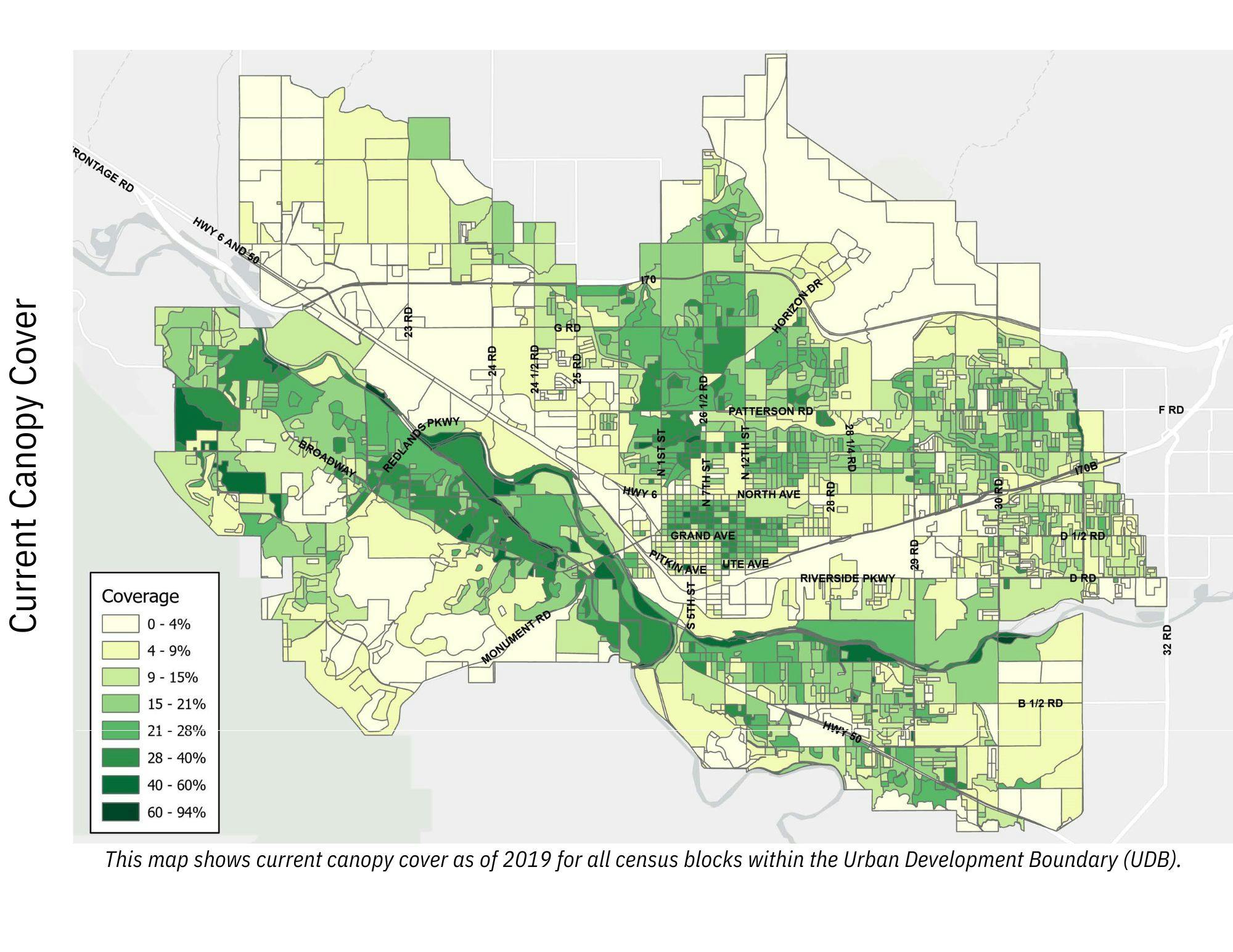Grand Junction's Urban Forestry
Help us Beat the Beetle!
The City of Grand Junction, Mesa County, and Colorado State University (CSU) Extension are teaming up to fight the Japanese Beetles- an invasive pest that feeds on more than 300 plants including turfgrass. Our efforts are proving effective, but we need widespread support in order to make a significant impact on the beetle population.
The Japanese Beetle was first spotted in the Grand Junction area in 2022 and Mesa County declared the beetle a public nuisance in March 2023.

How can you help beat the beetle?
Mesa County and CSU Extension Tri-River Area are recommending insecticides with the active ingredient chlorantraniliprole to manage larvae of Japanese Beetle in turfgrass, these include
- GrubEx which are animal and people safe and can be purchased at local nurseries and hardware stores for use on residential lawns.
- Acelepryn which can only be purchased and applied by licensed landscapers.
Residents are encouraged to monitor their plants and turf for the presence of the Japanese Beetles and report any sightings of the pest to the Japanese Beetle hotline at 970-248-7000.
About our Canopy
Grand Junction has long been recognized for its beautiful tree canopy, and since 1982 has been a USA Tree City. This history began in the late 1800s when settlers dug the first irrigation canals and created the first tree nurseries, a time when Cottonwoods, Willows, centuries-old Junipers, and Bristle Cone Pines lined the edge of our rivers. By 1900, hundreds of acres of orchards had joined the types of trees in the area with crops of peaches, apples, and pears which to this day remain central to Grand Junction’s identity and line the streets of downtown and Lincoln Park.
Did you know that Grand Junction is home to some of Colorado's Champion Trees, which are the largest trees of a given species in the state? The largest Dawn Redwood, Siberian Elm, Mimosa, and Desert Willow live here, and the state-champion Weeping Mulberry is one of the 69 labeled trees at the Lincoln Park Arboretum.
The City of Grand Junction has also received a Tree City USA Award for 40 consecutive years and the National Arbor Foundation Growth Award for 26 years. These achievements reflect the City’s commitment to growing and maintaining its canopy cover, amounting to more than one percent of the City’s annual budget. The City’s agricultural heritage, canals, and the Colorado and Gunnison Rivers have supported the growth of the community’s urban forest. However, the community faces current and long-range constraints to the water supply as well as an ongoing trend of warming and increasing climate variability which means our plans must look to the future.
How you can contribute
It is this rich history of being a welcoming home to trees that have created the need for community input on the Urban Forestry Management Plan. Community members were able to participate in a survey regarding their knowledge and interest in the Urban Forest. Two focus groups, one virtual and one in-person, were held to learn more about community members' comments regarding the plan. The plan is now scheduled to be presented to City Council on April 19, 2023.
Related Topics
- Grand Junction Ash Trees are threatened by exceptional droughts and increasing pressures from insects, including the Lilac Ash Borer and Ash Bark Beatle. Ash trees make up 20% of Grand Junction trees, and pests are killing these trees at an alarming rate. They need our support so we can continue enjoying their benefits. Luckily, we have a solution! We are teaming up with T4 Tree Service to deliver Grand Junction residents the opportunity to protect their private Ash trees against these killer pests. The City will pay for 50% of the cost to treat and protect your private Ash Tree! For more information and to register with T4 Tree Service, visit Root for your Ash.
- Back again this year, residents had the opportunity to register for seedling home delivery. Within two days, the seedlings sold out! Another opportunity for Grand Junction residents is to pick up seedlings at the Southwest Arbor Fest on Saturday, April 22 at Lincoln Park.
- The invasive Japanese Beetle has been identified in a select area of Grand Junction. Mesa County will be assisting in treatment for the residents in the identified region where the beetle has been located. To see if you live in the hot spot or want more information about the Japanese Beetle, visit Mesa County's website here.
- Grand Junction was once again named a Tree City USA. The Arbor Foundation recognized Grand Junction as a 2022 Tree City USA recipient. “Tree City USA communities see the positive effects of an urban forest firsthand,” said Dan Lambe, chief executive of the Arbor Day Foundation. “The trees being planted and cared for by Grand Junction are ensuring that generations to come will enjoy a better quality of life. Additionally, participation in this program brings residents together and creates a sense of civic pride, whether it’s through volunteer engagement or public education.” "Our trees contribute to improved air quality and conservation of water resources, help reduce the impacts of extreme temperatures, and positively impact our overall health and well-being,” stated Ken Sherbenou, Parks and Recreation director. “We are very proud of our city’s tree canopy, and of having received this recognition as a Tree City USA community for the past 40 years.”






